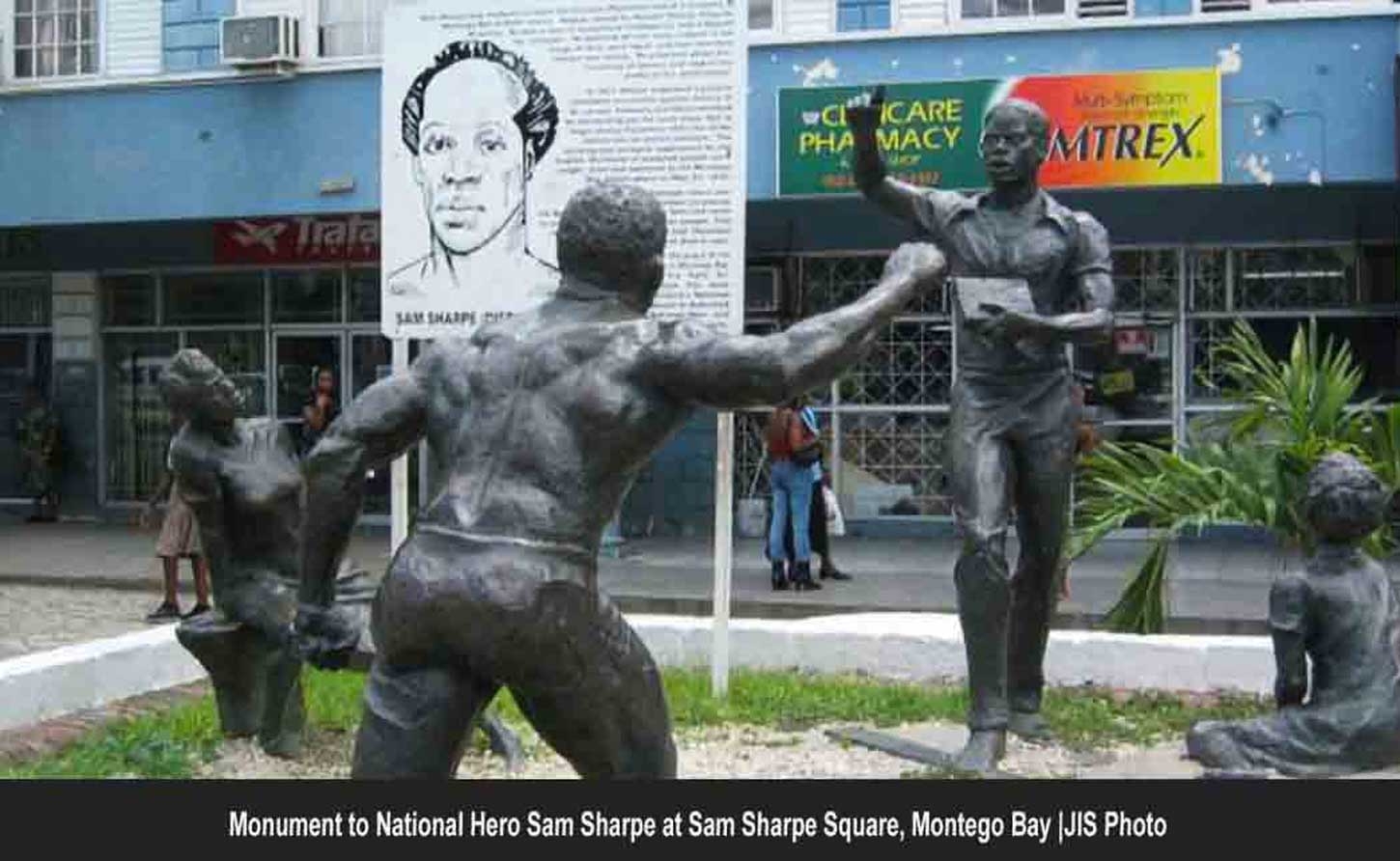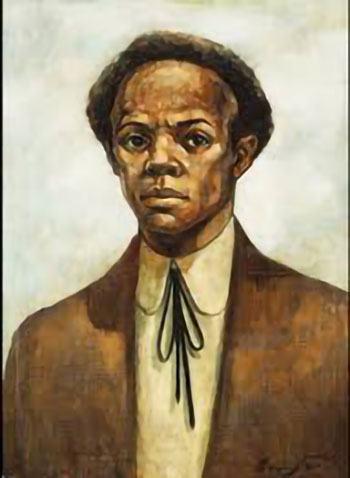JAMAICA | Flames of Freedom: The 193rd Anniversary of the Sam Sharpe War, Its Lasting Impact on Emancipation

MONTEGO BAY, December 23, 2024 - Today marks the 193rd anniversary of the Sam Sharpe War, a pivotal event in the history of the fight against chattel slavery in the British Caribbean colonies.

The decision to recognize December 27 as Sam Sharpe Day stems from a 2020 submission by Culture Minister Olivia Grange to the Governor General. This act of remembrance honors the monumental role that Sam Sharpe, an enslaved Baptist preacher, played in orchestrating the 1831 revolutionary war.
Delroy A. Reid-Salmon, in his seminal work “Burning for Freedom,” captures the multi-faceted nature of the revolt. Some view it as a religious war, others as a political uprising, and yet others perceive it as an industrial action leading to a violent revolution. For Reid-Salmon, a theological scholar, it represents a divine intervention in the struggle for freedom, righteousness, and hope.
Reverend C. S. Reid, in his book “Sam Sharpe, - From Slave to National Hero,” eloquently describes Sharpe's contribution as a hammer blow against an entrenched economic and social system in the Americas, a system many believed was essential for European prosperity.
The reverberations of Sharpe's war not only shook the foundations of slavery in the British Empire but also earned him a distinguished place in the social history of the 19th century. His actions catalyzed the struggle that eventually led to the abolition of the slave system, not just in Jamaica but across the British Empire.
The legacy of Sam Sharpe and the 1831 uprising was instrumental in precipitating the historic vote in the British House of Commons in August 1833, leading to the passage of the Slave Emancipation Act. This landmark legislation marked the beginning of the end for slavery within the British Commonwealth.
However, the Act also highlighted the financial disparities of emancipation. While plantation owners were compensated with a significant government grant of £20,000,000 for their 'loss,' the freed slaves received no such compensation. Britain allocated a staggering 40% of its national budget to this end, a debt not fully paid off until 2015.
The freed slaves, meanwhile, continued to endure hardships, remaining landless and facing meager wages on the plantations.
Professor Verene A. Shepherd, a renowned social historian and head of the Centre for Reparation Research at the University of the West Indies, Mona, has emphasized the monumental scale of the war led by Sam Sharpe.

The 1832 petition from enslavers to the Jamaica House of Assembly, which they described as a rebellion, indeed marked a turning point in the struggle for emancipation.
Shepherd's analysis extends to the present day, underscoring the continuous battle for true emancipation. She laments that even today, efforts to fully achieve emancipation continue, with actions on both sides of the Atlantic often perceived as symbolic rather than substantive.
This is evident in the ongoing debates in Jamaica about transitioning from a monarchical system to a republic. She echoes the sentiments of Hilary Beckles, urging a departure from intellectual timidity to fulfill the mission of the ancestors.
This sentiment is reinforced by the words of another Jamaican National Hero, Marcus Mosiah Garvey, as famously paraphrased by Bob Marley in “Redemption Song”: the need for mental emancipation, for true freedom lies in freeing the mind.
The recognition of Samuel Sharpe's pivotal role in this historical narrative was significantly advanced by the efforts of former Member of Parliament for South St. James, Derrick Kellier. For over two decades, Kellier was a driving force behind the promotion of Sharpe’s legacy, collaborating with the Kensington Citizens Association and the South St. James Social and Economic Development Trust.
Their endeavors led to the creation of the Tulloch Castle memorial, which included an amphitheater dedicated to hosting annual Sam Sharpe commemoration events. It was here, at Tulloch Castle, where the first flames of the revolution were ignited, marking the beginning of a war that would eventually alter the course of history.
Kellier’s relentless advocacy resulted in the official recognition of December 27 as Sam Sharpe Day in 2020, a day now fully state-sponsored. While a member of parliament Kellier's vision of Black emancipation remained steadfast. He utilized funds from his Community Development Fund and grants from various cultural and social organizations to engage the communities in South St. James in various activities celebrating Sam Sharpe.

The full realization of freedom for the enslaved Africans in the British West Indies did not occur until midnight on July 31, 1838, marking the end of the apprenticeship period instituted by the 1833 Act. This momentous event signified the true end of legal slavery in these territories.
However, the path to this freedom was paved by continuous resistance and rebellion across the Caribbean. Notable among these were the 1823 Demerara rebellion in British Guiana and the ultimate act of defiance in Western Jamaica on December 27, 1831, when the Tulloch Castle sugar estate was set ablaze.
These Flames of Freedom, as they came to be known, symbolized the unyielding spirit of the enslaved Africans and their descendants in their quest for freedom.
As we commemorate Sam Sharpe Day, it serves not only as a remembrance of the past struggles but also as a beacon for ongoing efforts towards true freedom and equality. The legacy of Sam Sharpe and his contemporaries continues to inspire generations, reminding us of the resilience and courage of those who fought against the injustices of slavery.
Their sacrifices laid the foundation for the freedoms we enjoy today and challenge us to continue striving for a world where liberty and justice are not just ideals but realities for all.
As we close this reflection on the Sam Sharpe War and its enduring legacy, we are reminded that the journey towards a more just and equitable society is ongoing. The lessons of the past continue to inform our present and inspire our future.
The spirit of Sam Sharpe, a symbol of resistance and emancipation, encourages us to remain steadfast in our pursuit of a world where freedom and dignity are not just granted but are inherent rights for all.
-30-

 En
En  Ar
Ar